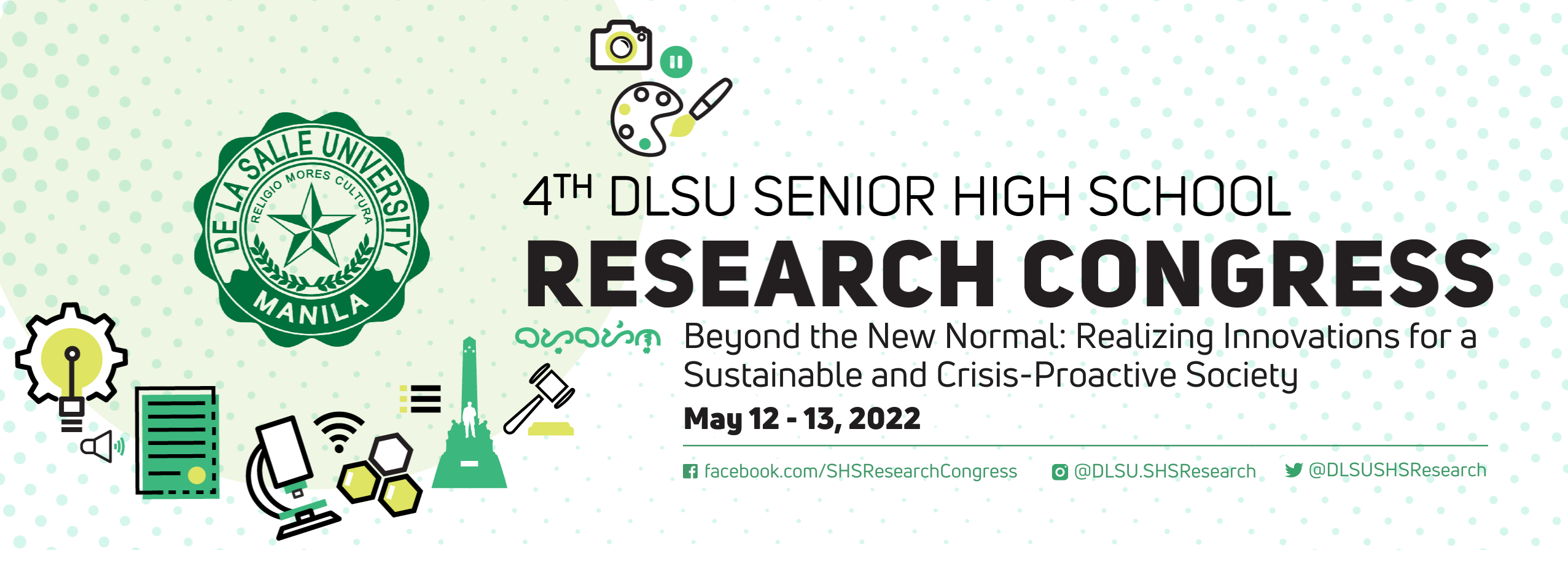Document Types
Paper Presentation
Research Theme (for Paper Presentation and Poster Presentation submissions only)
Sustainability, Environment, and Energy (SEE)
Research Advisor (Last Name, First Name, Middle Initial)
Zeba F. Alam
Start Date
13-5-2022 10:30 AM
End Date
13-5-2022 12:00 PM
Abstract/Executive Summary
E-waste management is an emerging challenge both globally and in the Philippines due to its hazardous impacts on human health and the environment. The COVID-19 pandemic and physical distancing protocols have further induced heavier reliance and increased usage of a range of electronic gadgets for home learning, work from home, and healthcare. Hence, this study seeks to explore how the pandemic has affected e-waste generation and management systems in the Philippines using online surveys and over-the-phone interviews involving various stakeholders such as Filipino electronics consumers, electronics manufacturers, junk shop owners, environmentalists, and policy makers. In line with studies reported from other countries, results show that the nine investigated electronics experienced a general decrease of 30.2% from 2018-2019 (pre-pandemic) to 2020-2021 (mid-pandemic). Notably, mobile phones garnered the largest volume of both sales and disposal from 2018-2021. Lockdown restrictions, lack of recyclers, and insufficient awareness are the key factors faced by common Filipinos in e-waste recycling during the pandemic. Local junk shop owners experienced a decrease in incoming e-waste volumes from local households and private companies. Mobile phones were reported to be the most difficult electronic gadget to recycle, and batteries were reported to be the most harmful component for both human health and the environment. Overall, the environmentalists and professionals identified lack of public awareness as the largest problem in the e-waste management system and recommended that public and private bodies engage in joint efforts to create comprehensive guidelines regarding the manufacture, consumption, and disposal of electronics.
Keywords
WEEEs; e-waste management; Philippines; COVID-19 pandemic, environment
The Evaluation of E-Waste Management During the COVID-19 Pandemic in the Philippines
E-waste management is an emerging challenge both globally and in the Philippines due to its hazardous impacts on human health and the environment. The COVID-19 pandemic and physical distancing protocols have further induced heavier reliance and increased usage of a range of electronic gadgets for home learning, work from home, and healthcare. Hence, this study seeks to explore how the pandemic has affected e-waste generation and management systems in the Philippines using online surveys and over-the-phone interviews involving various stakeholders such as Filipino electronics consumers, electronics manufacturers, junk shop owners, environmentalists, and policy makers. In line with studies reported from other countries, results show that the nine investigated electronics experienced a general decrease of 30.2% from 2018-2019 (pre-pandemic) to 2020-2021 (mid-pandemic). Notably, mobile phones garnered the largest volume of both sales and disposal from 2018-2021. Lockdown restrictions, lack of recyclers, and insufficient awareness are the key factors faced by common Filipinos in e-waste recycling during the pandemic. Local junk shop owners experienced a decrease in incoming e-waste volumes from local households and private companies. Mobile phones were reported to be the most difficult electronic gadget to recycle, and batteries were reported to be the most harmful component for both human health and the environment. Overall, the environmentalists and professionals identified lack of public awareness as the largest problem in the e-waste management system and recommended that public and private bodies engage in joint efforts to create comprehensive guidelines regarding the manufacture, consumption, and disposal of electronics.


